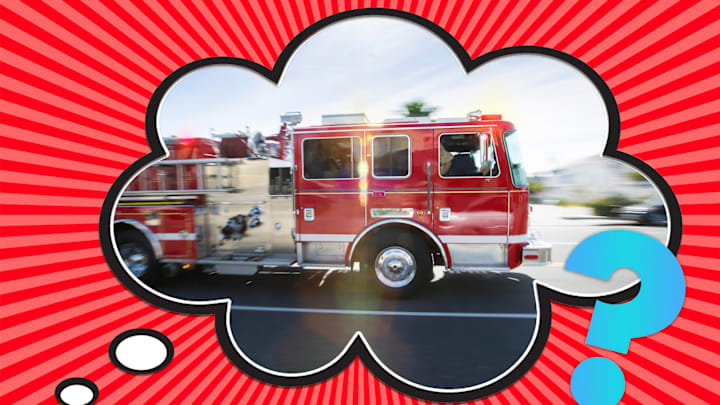Seeing a fire truck screaming down the street can bring a lot of things to mind. “Where’s the fire?” being one; "I hope it's not my house," being another; and “why is a fire truck red?” popping up every once in a while. While red is undoubtedly eye-catching, most people defer to fire trucks owing to their sirens and flashing lights: You’ll hear one long before you see it. So why are fire trucks red?
According to the automotive experts at J.D. Power, history is littered with theories. Prior to the advent of the automobile, firefighting equipment was mounted on horse-drawn wagons or carriages. These wagons, which had been repurposed from farms, were often painted red on their undercarriage because red was an inexpensive color and because it often hid dirt and debris from roads. When firehouses adopted the wagons, they adopted their paint scheme, too.
But that doesn’t readily explain how fire trucks with engines were emblazoned with red. Another, more credible theory asserts that automotive pioneer Henry Ford had a lot to do with it. In the early 20th century, Ford’s Model T was the most popular vehicle on the road. Between 1914 and 1925, the T was available in one color—black. When fire trucks hit the streets, it made sense to paint them red to stand out from the company’s fleet of passenger vehicles.
Studies have been conducted looking into various color schemes for emergency vehicles, often with contrasting results. While colors like lime yellow are more noticeable than red, for example, it doesn’t do much good if drivers don’t associate the color with emergencies.
While there are a few different reasons fire trucks were originally painted red, fire trucks remain red simply because it would be difficult to unlearn our association that red equals urgency.
Incidentally, there’s a difference between a fire engine and a fire truck. A fire engine usually transports massive quantities of water to fight fires until a hydrant is accessed, while a fire truck carries ladders and other support equipment.
Have you got a Big Question you'd like us to answer? If so, let us know by emailing us at bigquestions@mentalfloss.com.
